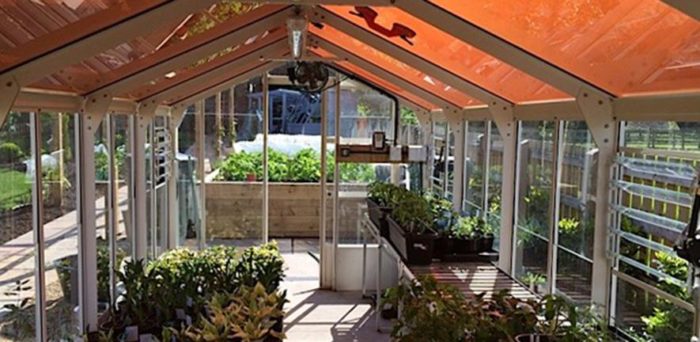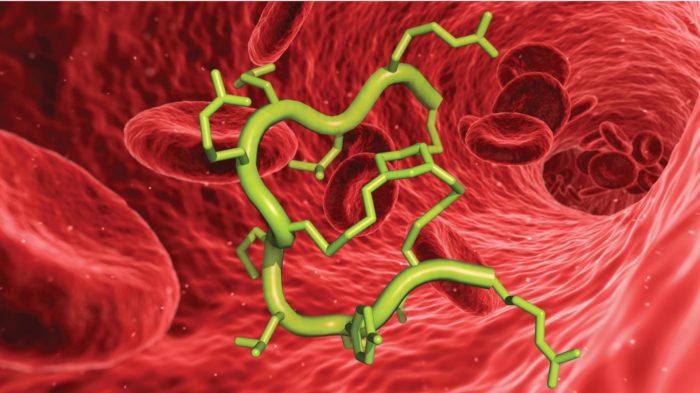Aug
06
2020
 If you follow any science news aggregator you will see a ton of solar power news. The industry is clearly advancing quickly, and this is translating to the field – to actual production of commercial solar panels. It seems likely that the solar news of today will be the solar energy of the not-to-distant future. So what’s on the horizon?
If you follow any science news aggregator you will see a ton of solar power news. The industry is clearly advancing quickly, and this is translating to the field – to actual production of commercial solar panels. It seems likely that the solar news of today will be the solar energy of the not-to-distant future. So what’s on the horizon?
One of the advances that seems likely to at least add to the way solar is produce is semitransparent tinted solar panels. These are basically windows that capture some frequencies of light to produce electricity while allowing other frequencies to pass through. The efficiency (percent of light energy converted to electricity) of these photovoltaics is in the 17-18% range, which is right in the range of current commercial solar (15-20%). Of course, advances are also increasing the efficiency of silicon-based solar panels, which should reach the mid 20s. There is also the promise of perovskite solar panels which can top 30%, at least theoretically. Finally there are organic solar cells which are less efficient, in the mid teens, but are really cheap.
Essentially, there are lots of options coming when it comes to solar power, and this means the best option can be applied to many different situations. One interesting idea is agrivoltaics – combining farming with photovoltaic energy production. This uses tinted semitransparent solar panels in greenhouses or other covered farming. The color of the panels results from the frequencies that they allow to pass through, while the other colors are used to generate electricity. The idea is to choose the frequencies most important for growing specific crops, while using the less important frequencies to generate power.
Continue Reading »
Aug
04
2020
 There are many “holy grails” in medicine (as in every field) – a treatment or drug that has optimal properties. These are often elusive for a couple of reasons. First, often technology requires a suite of simultaneous traits in order to be useful. Lacking any one is a potential deal-killer. Second, desired traits may be inherently mutually exclusive, or at least very difficult to reconcile. One such holy grail in medicine we have taken a big step towards is a treatment that thins the blood to reduce the risk of abnormal blood clotting (thrombosis) without impairing normal clotting and increasing the risk of bleeding.
There are many “holy grails” in medicine (as in every field) – a treatment or drug that has optimal properties. These are often elusive for a couple of reasons. First, often technology requires a suite of simultaneous traits in order to be useful. Lacking any one is a potential deal-killer. Second, desired traits may be inherently mutually exclusive, or at least very difficult to reconcile. One such holy grail in medicine we have taken a big step towards is a treatment that thins the blood to reduce the risk of abnormal blood clotting (thrombosis) without impairing normal clotting and increasing the risk of bleeding.
A recent article in Nature Communications details a preliminary study of just such a treatment, although it is not yet quite ready for prime-time.
Blood-thinning is a useful treatment for several reasons. Blood clots cause many strokes and heart attacks, which are among the highest killers. They also can form on artificial implants, such as mechanical heart valves and artificial lungs (temporary bridging treatment for patients awaiting lung transplant). Essentially any artificial surface that comes in contact with blood in the body can serve as a trigger for thrombosis.
But, of course, we need our blood to clot, or otherwise we would bleed. Therefore treatments to inhibit blood clotting to reduce the risk of stroke or heart attack have always been a delicate balancing act – thinning the blood just enough to reduce risk while minimizing the increased risk of bleeding. You always get one with the other, however, and optimal treatment is a matter of finding the optimal trade-off. If we could, however, reduce thrombosis without increasing bleeding risk, that would be ideal. But it seems that the two things go hand-in-hand, so how is this possible even in theory?
Continue Reading »
Aug
03
2020
 A recent commentary on Forbes advises: You Must Not ‘Do Your Own Research’ When It Comes To Science. I agree with everything the author, Ethan Siegel, says in the piece. It was a good start – but did not go far enough. For example, he did not really reach any conclusion about what people should actually do, beyond “listen to the experts.” OK – how, exactly, do we do that? This is not a criticism (I have written similar articles before) but an observation: after trying to communicate these same skeptical themes for decades and getting thousands of questions from the public, I have realized that it is perhaps not so obvious what it means to listen to the experts.
A recent commentary on Forbes advises: You Must Not ‘Do Your Own Research’ When It Comes To Science. I agree with everything the author, Ethan Siegel, says in the piece. It was a good start – but did not go far enough. For example, he did not really reach any conclusion about what people should actually do, beyond “listen to the experts.” OK – how, exactly, do we do that? This is not a criticism (I have written similar articles before) but an observation: after trying to communicate these same skeptical themes for decades and getting thousands of questions from the public, I have realized that it is perhaps not so obvious what it means to listen to the experts.
First let me amplify what Siegel gets right, although I may reframe it a bit. He correctly describes the typical process that people use when evaluating new information, although does not name it – confirmation bias. His summary is as good as any:
- formulating an initial opinion the first time we hear about something,
- evaluating everything we encounter after that through that lens of our gut instinct,
- finding reasons to think positively about the portions of the narrative that support or justify our initial opinion,
- and finding reasons to discount or otherwise dismiss the portions that detract from it.
Continue Reading »
 If you follow any science news aggregator you will see a ton of solar power news. The industry is clearly advancing quickly, and this is translating to the field – to actual production of commercial solar panels. It seems likely that the solar news of today will be the solar energy of the not-to-distant future. So what’s on the horizon?
If you follow any science news aggregator you will see a ton of solar power news. The industry is clearly advancing quickly, and this is translating to the field – to actual production of commercial solar panels. It seems likely that the solar news of today will be the solar energy of the not-to-distant future. So what’s on the horizon?
 There are many “holy grails” in medicine (as in every field) – a treatment or drug that has optimal properties. These are often elusive for a couple of reasons. First, often technology requires a suite of simultaneous traits in order to be useful. Lacking any one is a potential deal-killer. Second, desired traits may be inherently mutually exclusive, or at least very difficult to reconcile. One such holy grail in medicine we have taken a big step towards is a treatment that thins the blood to reduce the risk of abnormal blood clotting (thrombosis) without impairing normal clotting and increasing the risk of bleeding.
There are many “holy grails” in medicine (as in every field) – a treatment or drug that has optimal properties. These are often elusive for a couple of reasons. First, often technology requires a suite of simultaneous traits in order to be useful. Lacking any one is a potential deal-killer. Second, desired traits may be inherently mutually exclusive, or at least very difficult to reconcile. One such holy grail in medicine we have taken a big step towards is a treatment that thins the blood to reduce the risk of abnormal blood clotting (thrombosis) without impairing normal clotting and increasing the risk of bleeding. A recent commentary on Forbes advises:
A recent commentary on Forbes advises: 




